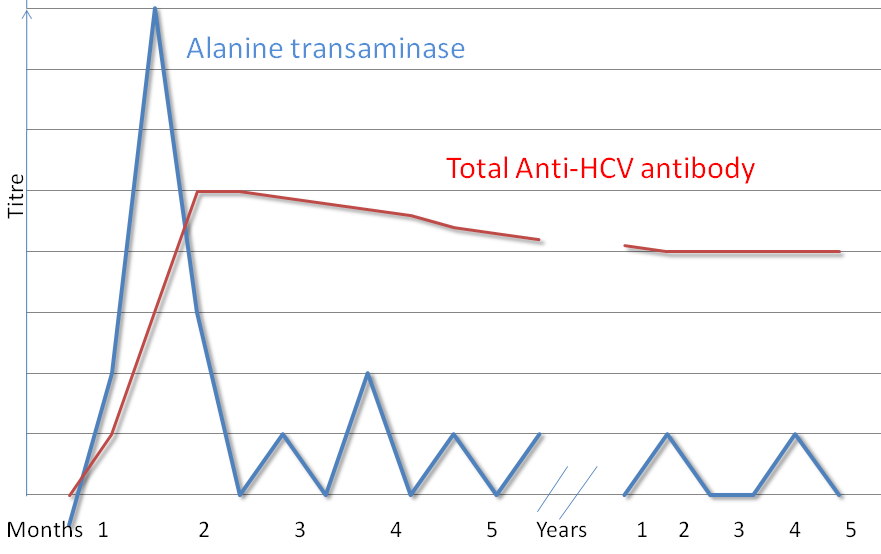You’ve probably heard about Hepatitis C. There are regularly commercials advertising medications that treat the issue. Perhaps you have an acquaintance that has been afflicted by the virus. Or maybe you’re concerned that you’ve somehow contracted the virus.
Unfortunately, there’s also a lot of misunderstanding about Hepatitis C, how it varies from other strains of Hepatitis, and how it can be treated. These misunderstandings often lead to fear, frustration, and confusion.
If that’s you, have no fear. The issue really isn’t that complicated. Once you know the facts, you’ll be equipped to discuss and even be treated for it if necessary.
Consider this your primer on Hepatitis C. We’re going to break down the what, why, and how of the virus so that you can make appropriate and informed decisions.
What is Hepatitis C?
The Hepatitis C Virus (HCV), like all other variants of hepatitis (A,B,D,E), is an infectious disease that attacks the liver and its hampers many of its essential functions. During its initial gestation phase, it presents mild to no symptoms. This in itself makes it hard to diagnose.
and its hampers many of its essential functions. During its initial gestation phase, it presents mild to no symptoms. This in itself makes it hard to diagnose.
As the disease progresses and becomes chronic, it starts to wreak havoc on the liver. Over time, it may lead to cirrhosis, liver failure, cancer, blood infections and hemoglobin diseases, autoimmune weakness, and all manner of horrible complications in the gastrointestinal tract.
The spread of infection of Hepatitis C is mostly through blood-to-blood contact. Unlike other strains of Hepatitis, there are few cases of it being propagated through unsafe sex. In most case, the HCV is spread through intravenous drug use, poor sterilized medical equipment, from mother to child during pregnancy, or open injuries and blood transfusions.
Thankfully, due to a thorough screening process, blood transfusion infections have declined over the years; as of 2016, it’s estimated that less than one per two million patients receiving medical transfusions run the risk of being infected. The virus is not spread through superficial contact and there is no known vaccine against it.
Chronic infection can be treated, and in 95% of cases, it can be cured. In the mid-1990s, thanks to the use of Peginterferon and Ribavirin, people suffering from HCV had a 50% chance of beating the illness.
During this period, the side effects of these two drugs were almost as bad as the symptoms of HCV. Thankfully, advances in research have led to Sofosbuvir, Simeprevir, and other medications, each yielding an almost 100% success rate and few effects.
Hepatitis C versus Hepatitis B
There’s is no real answer as to which of the two strains of Hepatitis (B or C) is “worst”. Unlike Hepatitis A, which has the potential to make people feel horribly ill but is not chronic, Hepatitis C and B can cause irreparable damage to the liver and in many cases can lead to chronic diseases.
On one hand, HCV has the ability to become a chronic disease in about 85% of patients. On the other hand, studies have shown that Hepatitis B is associated with higher liver-related mortality.
Some consider HCV to be worse because the blood test to properly diagnose it has only been around for 14 years. This means that those born before the 90s have the potential of carrying the virus and transmitting it without any knowledge of it.
It should be noted that, although HCV has lately been the focus of media attention, both variants of the virus are potential killers. The medical community has an obligation and a responsibility to be on the lookout for both.
Hepatitis C Symptoms
In most cases, Hepatitis C is an asymptomatic virus; less than 15 percent of infected develop acute symptoms.
This means that 85 percent of those with HCV don’t know they carry the virus and probably won’t know unless they take a blood test. In fact, people can live their entire lives with Hepatitis C and not be aware, although, after 20 years, most people start to develop liver problems.
This is highly problematic. Although the disease does not present noticeable health changes, it opens up the body to other types of complications.
Given that HCV is normally a “silent” infection for many years, symptoms usually don’t reveal themselves until there’s noticeable liver damage. These symptoms often include:
- Trouble with hemoglobin levels which might lead to blood-related problems, such as bleeding and bruising easily and being unable to heal properly.
- Anemia, fatigue, poor appetite, and weight loss.
- Yellow discoloration of skin and eyes (jaundice), dark-colored urine, and fluid buildup.
- Swelling in the legs, confusion, spider angiomas (blood vessels bursting in your skin in form of spiders or webs), acute abdominal pain, muscle aches, fever, joint pain, and depression.
If HCV is not properly treated and it becomes chronic, it can lead to complete liver impairment, cirrhosis, cancer, and even death.
Risk Groups
The following demographics should get their blood tested for antibodies and viral RNA associated with the disease.
- If you’ve had any sort of blood transfusion before 1992, you should get tested immediately.
- Health care workers who have suffered needle-related accidents.
- Injection drug users, including those in rehab and those who haven’t used drugs for many years.
- Infants born to HCV mothers.
- Although unlikely, people who have multiple sexual partners or who take part in high-risk sexual behavior.
- People who have shared razors, toothbrushes, other personal items with other people who have HCV.
- Those who have had tattoos or any other type of body modification in unclean environments.
- Those who have HIV. An HCV-HIV co-infection, when the body has both HIV and Hepatitis C, is fairly common. About one-third of all Americans infected with HIV also have Hepatitis C.
Treatments for Hepatitis
Getting treatment for HCV depends on the following factors: how damaged the liver is, how much of the virus is in the body, other medical  conditions present, and the genotype (there are 6 strains of the virus, each found in a different region of the world) of hepatitis.
conditions present, and the genotype (there are 6 strains of the virus, each found in a different region of the world) of hepatitis.
Treatment, if approved and recommended by a physician, usually comes in the form of a of oral and intravenous antivirals. Depending on the level of infection in the body, treatment may take anywhere between 12 weeks to a year for results.
After a person has been treated, they’ll have to get regular blood check-ups in order to evaluate whether the virus is truly gone or if a relapse has occurred.
If HCV has reached a terminal phase, doctors will encourage a full liver transplant as a last measure.
Living With Hepatitis C
A person diagnosed with Hepatitis C should make several lifestyle changes immediately:
- Avoid all alcohol. Alcohol tends to speed up the progress of liver disease.
- Stay away from any medications which can cause liver damage. Certain medications (like Tylenol) and supplements have the potential to cause liver damage. Always carefully read the warnings to ensure you avoid taking these.
- Help others avoid contact with your blood. Always avoid sharing a razor or toothbrush with people. Additionally, if you have any open wounds, cover them. If you donate blood, organs, or semen, advise the healthcare workers of your condition. Additionally, tell your partner about your condition before having sex and always use condoms.
Conclusion
HCV is a serious condition that, if untreated, can result in significant health problems. However, if you or someone you know has been diagnosed with HCV, it’s not the end of the world. Over the last 20 years, there have been significant advances in medical technology which have made it possible to effectively treat the virus and often bring about a full recovery.
If you’re concerned that you have HCV, get tested today. Don’t wait until symptoms appear, as it’s often too late to repair your liver by that point. Get tested and begin being treated.
Terry Biddle is a business owner, blogger, retired Army National Guard officer, and a current federal employee. He works with seniors, federal employees, and members of the military to get the most life insurance benefits at the greatest value across the full spectrum of term and permanent products from fully underwritten to no-exam and guaranteed issue.
Last Updated on March 8, 2021 by lifepolicyshopper

